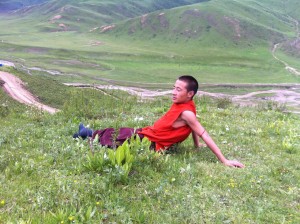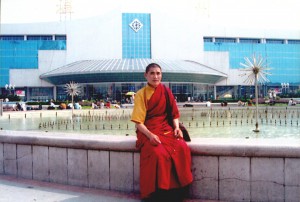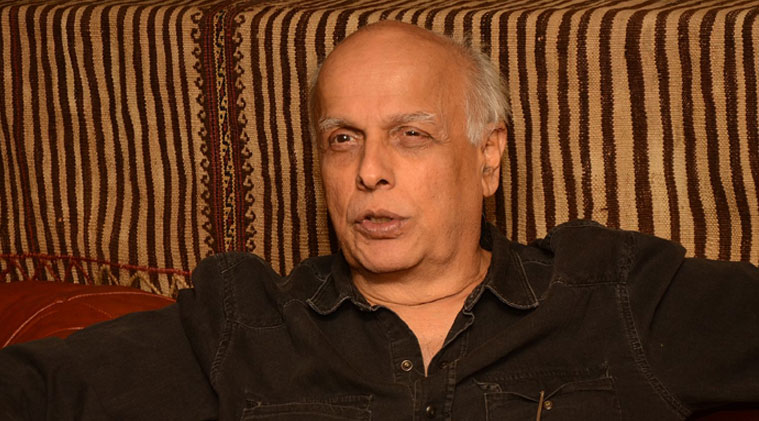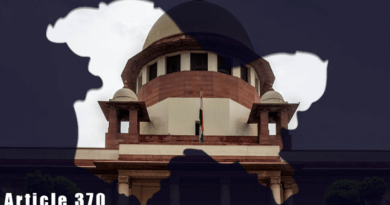2014 World Cup final: Germany beats Argentina for fourth title
[The Washington Post] RIO DE JANEIRO, July 13: Mario Goetze’s sensational goal in the 113th minute Sunday had shattered a scoreless tie with Argentina, and now as extra time was nearing the end, the roar from Germany’s supporters at Maracanã stadium swelled to ear-popping levels.
Germany wished to hear only one sound: referee Nicola Rizzoli’s whistle.
And when the 1-0 victory before 74,738 spectators was certified, a celebration 24 years in the making erupted at midfield, on the sideline, in the crowd and in the VIP section with Chancellor Angela Merkel.
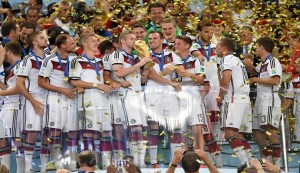
Goetze’s goal capped not only a rigorous affair with Lionel Messi and the Argentines, but completed a month of excellence in Brazil. It also capped a 10-year mission, begun under current U.S. Coach Jurgen Klinsmann, to reinvigorate one of the world’s most successful soccer programs.
“In 2004, German football was down,” said Coach Joachim Loew, Klinsmann’s assistant for the 2006 World Cup in Germany. “We took decisive steps. We said, ‘We have to invest more in the education so we are technically better.’ Just having the German virtue is not enough.”
The Germans won their first world championship since defeating Argentina in 1990 and increased their haul to four, tying Italy for second behind Brazil (five). They also ended an 18-year drought without a major trophy, dating from the 1996 European Championship, and became the first European team to win the World Cup in the Americas in eight attempts.
Argentina, a two-time World Cup winner appearing in its first final since dropping the ’90 duel with Germany in Rome, has not won since 1986 in Mexico City — a drought that has further elevated Diego Maradona’s legacy and blunted Messi’s effort to escape the shadow of his famed compatriot.
Despite the defeat, Messi (four goals) was awarded the Golden Ball as the tournament’s most valuable player.
Asked whether Messi, a four-time FIFA player of the year, remains behind the legends of the sport, Argentina Coach Alejandro Sabella said: “He was there among them before. He has been there for quite a while, in the pantheon of the big ones.”
Goetze’s goal marked the first time Argentina had trailed in seven matches and snapped a shutout streak of 486 minutes.
La Albiceleste had effectively executed its game plan — absorb pressure and counterattack — but missed two wonderful chances: by Gonzalo Higuain in the first half and Messi in the second. (Higuain also had an apparent first-half goal nullified by a correct offside call.)
“As well as they controlled the ball,” Messi said, “we still had the clearest chances.”
Both sides put forth supreme defensive performances, organized and unyielding. Germany’s Bastian Schweinsteiger and Argentina’s Javier Mascherano, masters of defensive midfield, did not flinch.
High-quality scoring opportunities were precious, and those that did materialize were not managed properly. The goalkeepers were tested on rare occasion.
But as the match dragged toward a penalty kick tiebreaker, the Germans broke through.
They attacked along the left flank, supplying Andre Schuerrle for a direct run that drew two defenders. Schuerrle, who had entered in the first half, served an exquisite cross to Goetze, who chested the ball down to himself at the edge of the six-yard box and tagged a left-footed sliding volley past goalkeeper Sergio Romero.
“It’s an unbelievable feeling,” said Goetze, a baby-faced 22-year-old midfielder from Bayern Munich.
“When you score that goal, you don’t really know what is happening. At the end of the match, it was indescribable, having a party with the team. A dream became a reality. It is absolutely sensational.”
Goetze had entered in the 88th minute, replacing Miroslav Klose, the World Cup’s all-time scoring leader.
“I said to Mario, ‘Okay, show to the world that you are better than Messi and you can decide the World Cup,’ ” Loew said. “You have all of the possibilities. I had a good feeling with him.”
The game’s trajectory was eerily similar to the 2010 final in Johannesburg, when Spain defeated the rambunctious Netherlands, 1-0, on Andres Iniesta’s goal in the 116th minute.
Argentina’s final hope during the 30-minute extra period fizzled when Messi’s 30-yard free kick floated harmlessly beyond the target.
This game did not come nearly as easily for Germany as its 7-1 destruction of Brazil in the semifinals.
Problems began before kickoff, when Sami Khedira, vital in the midfield engine room, aggravated a calf injury during warmups. Loew called on Christoph Kramer, who had played all of 12 minutes in two matches.
Kramer did not make it to halftime. He was dazed early in the match when Ezequiel Garay’s shoulder crashed into the side of his head but returned after receiving treatment. Twelve minutes later, though, he had to be helped off the field, his eyes glassy.
It was the first of several incidents involving blows to the head. Early in the second half, German goalkeeper Manuel Neuer drove his right knee into Higuain’s jaw while punching away a long ball.
Later, Sergio Aguero’s inadvertent slap bloodied Schweinsteiger under the right eye, and Thomas Mueller and Aguero bumped heads.
Sabella praised his team’s tenacity, saying: “These were warriors. I know this is not adequately used because we are talking about football, but I hope you will be able to understand what I mean by ‘warriors.’ Beyond the result and the sadness, there is something to be said about the performance. It was quite good. They left their skin on the pitch.”
The Argentines survived a scare just before halftime when Benedikt Hoewedes’s header slammed off the right post.
Both teams saw opportunities arise, but neither could apply a killer touch — until Schuerrle and Goetze, a pair of substitutes, combined for the game-winner.
“The joy and happiness,” Loew said, “I think it will be with us forever.”


